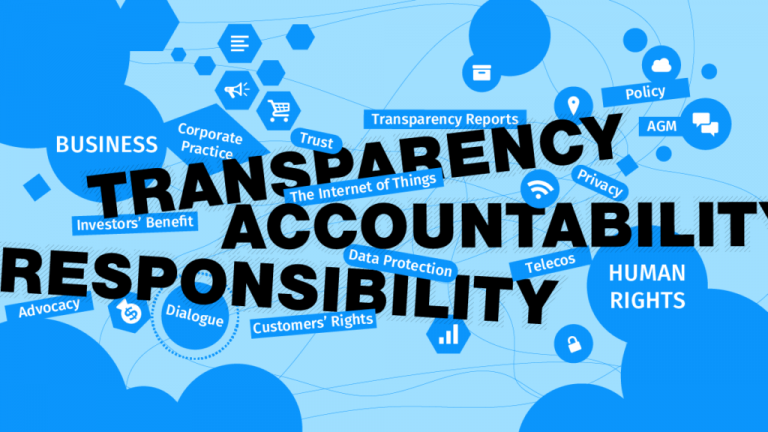In the past, companies have approached human rights issues through their corporate social responsibility (CSR). This, however, gave them the freedom to choose which initiatives to undertake. As a result, many companies violated human rights, while hiding under the cover of CSR. But as Mercy Mutemi, a digital rights lawyer of MS law, the business models are problematic, to begin with.
Speaking at our webinar on Business and Human rights, she reiterated that businesses are supposed to think of the rights they are going to violate before they even start a business, not the other way round. She was joined by other panellists, Liz Orembo, a policy associate at KICTANET and Claris Kariuki, the senior state counsel in the Office of the Attorney General and the department of justice. Our director partnerships, James Wamathai moderated the webinar.
On the subject of business human rights, it is safe to say that some, if not most of us are clueless when it comes to our rights when we are interacting with businesses, which is often. We interact with different businesses in every aspect of our lives, from the rent we pay every month, to the electricity and water bill to the grocery store where you buy your food, to the airtime you buy every day. But companies, especially those operating in the technology sector have been accused of enriching themselves at the expense of the customers they swore to serve diligently.
There have been accusations that they collect data from customers to sell it to other businesses without prior approval, there have been complaints of money lending companies getting access to contact lists and sending unsolicited messages to them, asking them to ask a loanee to pay a defaulted loan. International telcos have been accused of spying on its users. So many violations, but who is to blame?
Kenya has among the best laws in Africa that protect citizens from such violations, they include legislations like the Data Protection Law, The Consumer Protection Law, and the Kenyan constitution. Also, in line with the United Nations Guiding Principles on business and human rights, Kenya came up with the National Action Plan on Business and Human Rights, a policy document that outlines expectations for companies to respect human rights wherever they operate. But as Claris Kariuki put it, “The problem with Kenya is in the implementation. Kenya has many beautiful laws, especially after the promulgation of the new Constitution in 2010. The gap is in implementation and capacity building.” The government is mandated to bring people who violate human rights into account, but is it doing its job?
We have labour laws, but they are greatly ignored. Most workers also do not report these cases because of fear of losing their job, or lack of finances to do litigations. The ball has been thrown to companies’ court, to include human rights in their business model, but also, you as an individual has the mandate to speak out about these violations. Even something as your employer putting a biometric keypad at the door without your consent is a violation of your privacy rights.
As a business, ensure you familiarize yourself with the privacy and data laws in the area with which you operate. In future, it will be exceedingly difficult for businesses to operate if they do not incorporate human rights into their models.
Businesses will have the right to reply in the second segment of the conversation which will be held on 27th August. In the meantime, catch the highlights of the conversation using the #BizHumanRightsKE. Here is the whole conversation.
